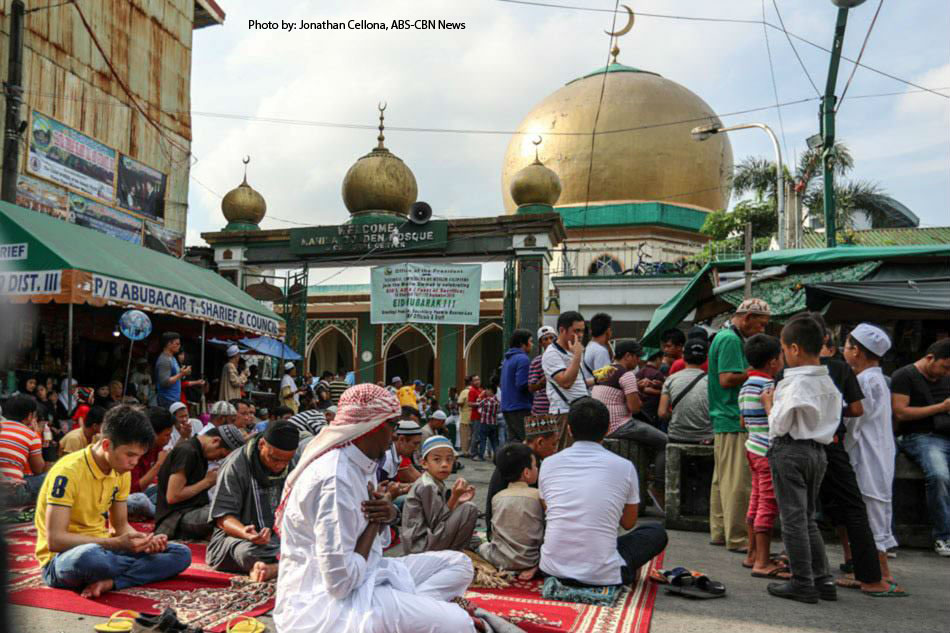Many today are victims of different forms of violence, including the psychological wars even against religions and religious people. ‘Id al Adha, the greatest Muslim celebration is an occasion to appreciate the deeper meaning of the feast of sacrifice, also known as Greater Bayram celebrated at the end of the annual pilgrimage to Mecca, on the tenth day of Dhu al-Hijjah, the month of pilgrimage. Unblemished animals are sacrificed in commemoration of the ram substituted by God when Abraham, according to the Holy Qur’an was commanded to sacrifice his son, Ishmael, as a test of faith. Only a portion, usually one-third, of this animal’s meat is to be consumed by the family offering the sacrifice. The rest is to be distributed to the poor.
Guided by this message we are invited in this occasion to remember the many poor of our society. Indeed, there are many poor today around the world and in our country that urge us to reflect more on our responsibilities not only towards those in need of food. There are many forms of poverties today and we are called to face them together as people who belong to the same Human Family as Pope Francis and the Grand Imam of Al-Azhar , Ahmad Al-Tayyeb remind us in the recent document, “Human Fraternity for the World Peace and Living Together” signed in Abu Dhabi on February 4, 2019.
Inspired by this document and the celebration of ‘Id al Adha, Silsilah wishes to tell all, including the Muslims who today, in the Philippines and other parts of the world, experience divisions among themselves. This struggle also reminds us what happened centuries ago among Catholics and other Christian denominations. Unfortunately, Christians now are still divided in different denominations, but today in most parts of the world there is respect among the different Christian groups.
The recent news of killing in the United States is once again a sad story of intolerance and terrorism due to accumulated negative feelings of hatred that can be considered a great form of poverty of our society. We can also identify similar situations around the world and in the Philippines where fear and hatred is spread even on the level of some religious groups. The document “Human Fraternity” reminds us:
“History shows that religious extremism, national extremism and also intolerance have produced in the world, be it in the East or West, what might be referred to as signs of a “third world war being fought piecemeal”. In several parts of the world and in many tragic circumstances these signs have begun to be painfully apparent, as in those situations where the precise number of victims, widows and orphans is unknown. We affirm also the importance of awakening religious awareness and the need to revive this awareness in the hearts of new generations through sound education and an adherence to moral values and upright religious teachings. In this way we can confront tendencies that are individualistic, selfish, conflicting, and also address radicalism and blind extremism in all its forms and expressions.”
It is important in the occasion of the ‘Id al Adha to reaffirm that the Abrahamic faith shared by Jewish people, Christians and Muslims can help us and people of other faiths to reaffirm the priority of God, accepting the differences of religions. The document “Human Fraternity” says:
“The first and most important aim of religions is to believe in God, to honour Him and to invite all men and women to believe that this universe depends on a God who governs it. He is the Creator who has formed us with His divine wisdom and has granted us the gift of life to protect it. It is a gift that no one has the right to take away, threaten or manipulate to suit oneself. Indeed, everyone must safeguard this gift of life from its beginning up to its natural end. We therefore condemn all those practices that are a threat to life such as genocide, acts of terrorism, forced displacement, human organ trafficking, abortion and euthanasia. We likewise condemn the policies that promote these practices.”
Religions in the world can contribute for peace and the feast of ‘Id al Adha is a great occasion for the Muslim Umma to find the way to move for peace. This message is valid for all. With this spirit we hope that the Culture of Dialogue as it is mentioned in the document “Human Fraternity” will become “as the path; mutual cooperation as the code of conduct; reciprocal understanding as the method and standard.”
- Note: The celebration of ‘Id al Adha in some places is spelled
Eid’l Adha

